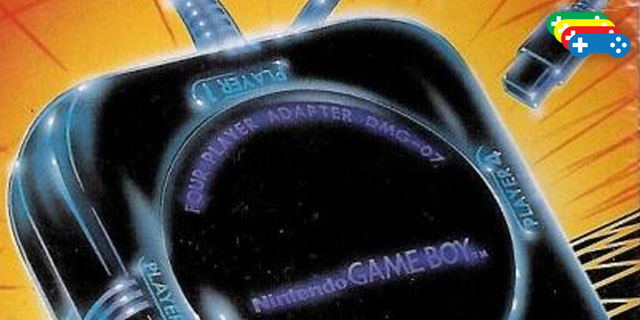
Generally, when you’re looking to play a game with friends, it’s much easier to do it on a home console. With portables, each player usually needs a system, and most need a copy of the game (and maybe some funky cables, if you go back enough). Generally, people haven’t bothered to take advantage of the technology. Of course, if you’re a crazy person like me, that’s more of an incentive than a barrier.
So let’s take it back to the first real appearance of this phenomenon: the original Game Boy and its Four Player Adapter. Generally, the support for this was limited to home system ports of games you really should play there, like Bomberman and Gauntlet. There are some interesting points here, though. (And not just the fabled 16-player Faceball 2000, which I have unfortunately not yet been able to experience.)
The gem in the library: Super R.C. Pro-Am, the first in the series to sport the frantic multiplayer experience people know from 1992’s R.C. Pro-Am II. It didn’t need extra tech to be fun, and that game’s so addictive that just having a few different tracks is worth checking out.
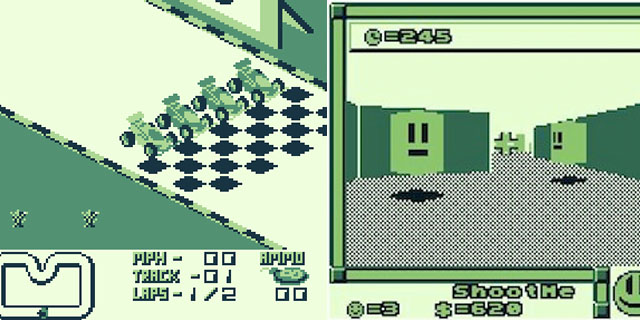
The Game Boy Advance was really the start of some great game ideas. Nintendo’s four-player initiatives included the innovative The Legend of Zelda: Four Swords (bundled in with the Link to the Past re-release), as well as Kirby & The Amazing Mirror, sporting a cooperative experience that was clearly the predecessor to the recent Wii release, Kirby’s Return to Dream Land. You could play the full game with three friends, each controlling a Kirby and generally going crazy.
Of course, the best GBA multiplayer experience didn’t need any extra equipment. The two Advance Wars games supported a great pass-and-play mode for four, and the game was structured in a way that meant no compromises had to be made with this setup. It’s an example of a game that works better on a handheld no matter where you are, since it allows you to keep your moves secret from opponents.
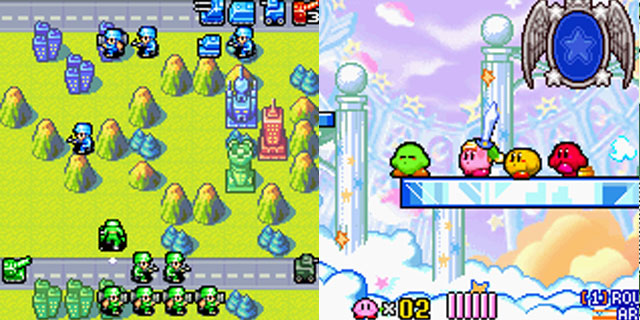
This initiative was made a lot more practical with the introduction of the DS and PSP and wireless multiplayer. Friends got together to play Mario Kart and other games, and they could play with 8 people and not need 7 identical cables to do it. Many experiences were smaller versions of console ones, but there are definitely some standouts. Meteos’ competitive multiplayer is frantic puzzle action of the best kind, the two DS Final Fantasy Crystal Chronicles games are fun for long sessions and Clubhouse Games is great if (for some reason) you have 8 DSes around but zero decks of cards.
The spotlight here goes to a Japan-only title, victim to a tangled licensing web. Remember how everyone wanted a Super Smash Bros. game on DS? Well Japan got one, basically, in Jump Superstars and its sequel, Jump Ultimate Stars. The game features Shonen Jump manga characters in arena battles, with special moves, items and interesting story mode scenarios. What makes it particularly enticing is the team-building scheme: you’re given comic panels of varying sizes to piece into a frame, and the characters and bonuses you fit in are the team you get to fight with. It’s import-friendly, so give it a shot.
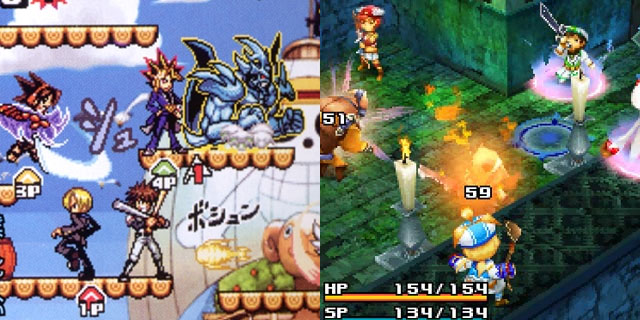
Nintendo’s not the only one to push local handheld multiplayer. The PSP has some phenomenal options, like the obvious Monster Hunter that took Japan by storm and the succeeding variations on that theme. (Sadly, if you don’t live in Japan, it’s tougher to assemble so many PSP owners in one place, though.)
Aside from Monster Hunter itself, which you really should at least try if you’re an alive person, here are some offbeat suggestions: WTF: Work Time Fun, a WarioWare-style minigame collection; Patapon 2, which is great if your friends have rhythm; and Star Wars Battlefront: Renegade Squadron, with an 8-player experience that rivals its console brethren.
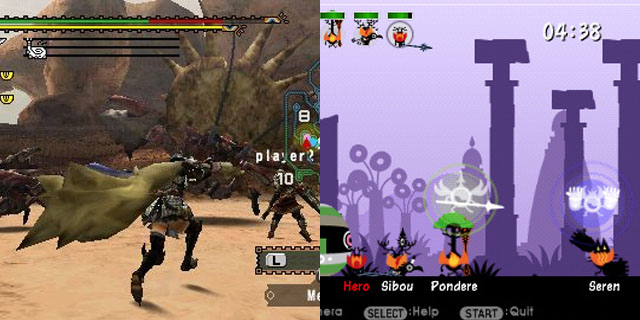
We haven’t seen much out of the new batch of consoles that is particularly special with offline multiplayer, as all focus has been on online play. That’s understandable, but I hope we don’t lose that special experience forever.



















